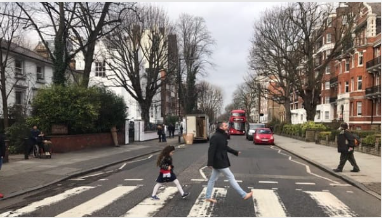Autoimmune Encephalitis Lived Experience — Tony’s Story

Tony shares his experience of autoimmune encephalitis
Sheesh…now where exactly does one start? This is my story of autoimmune encephalitis:
Since September 2012, I’ve told this story to many people, but it has always been for a slightly different audience than this one. Firstly, some people reading this will know what encephalitis is, whereas I can confidently say that not one person in all these years has turned around and said “Oh…I’ve heard about encephalitis”…not once!
All those with a story to tell about conditions, diseases etc., will have four main parts to talk about and discuss. These will most likely be:
What I was like before this happened
Before, I was a pretty average person with a good career, a nice family, doing nice things and going to nice places, with loads of nice people. In short, I was rather ordinary before these extraordinary events took place.
What happened?
When it comes to what happened, it was a day just like any other (sorry, I can’t resist the melodramatic start to this!)
I came home from work, had a fever for a couple of days and then started having convulsions (glad I don’t remember biting my tongue) and was taken into hospital (having punched a paramedic on the way there!). From that point on, my family insisted my condition was worse than the doctors thought and finally they managed to get me in front of an expert who took my symptoms seriously.
Dr George played a pivotal role from this point on. Once they got me to the hospital for an MRI and managed to hold me still in the tube for long enough to get what they needed, it was he who made the diagnosis of autoimmune encephalitis and explained the gravity of the situation to my wife and family.
Treatment
I don’t remember any of this. The first memories that I have are of being in ward 67 for what seemed like an eternity, having chronic insomnia and a general lack of inhibition; not that I was running about the ward with no clothes on or anything, but the nurses still laugh whenever I drop in all these years later.
Although I was in a battle to stay alive at one point, it was something that I was oblivious to and just a case of my immune system fighting my brain, whilst the hospital staff tried their best to treat my symptoms. After a couple of months, they managed to win the battle that my body was waging against my brain. To continue with rather corny analogies, my body may have won this battle, but the war had just begun. Like London after the blitz, there was elation that the systematic destruction had ended, but I was left with a city in ruins that had to be rebuilt.
How I dealt with it
Once I was out of the hospital, I went back to normal life with my family, friends and work colleagues; however, it took me a year or 2 to come to terms with the fact that I was never going to get back to the person I was before autoimmune encephalitis. In the years that followed, I was diagnosed with and treated for skin cancer (on my nether regions of all places!). However, this was manageable relative to encephalitis. So, I took that in my stride.
Although on the outside, I seem trivial about this, there was a method behind my jovial approach—I hoped that it would encourage others to seek help for something clouded in stigma and misunderstanding, in particular us blokes who tend not to seek medical help in this area quite as quickly as the better gender might.
With regards to brain trauma and the recovery process, I had spoken with the consultant about ‘brain plasticity’ (where the brain starts to use other areas to adapt and try to compensate for those that have been damaged) and I do think that this, and more practical tools, have helped. A strict diary was a key element, without it I couldn’t function at all and at one point I would even record meetings and phone calls at work.
How I am now
It’s not what anyone would expect (and certainly what anyone with this condition would like to hear!), but the past few years have been the most difficult. I’ve had to come to terms with the person I am now. Eventually, I’ve fully realised that I’m going to be ‘me’ for the rest of my days and, sad though it is, the ‘old me’ that I loved to bits is gone and neither I nor anyone else know or remember him anymore.
It’s not your fault that you can’t keep up the pretence forever and for some reason, it’s taken till now for the frustration and anger to kick in. It might take weeks for some, months for others but it’s taken me years for all of these elements to come to a head.
Something that you assume you might avoid is depression. Yes, you might expect to feel down at some points and have to power on through. But it’s the most difficult part to admit to and it’s something that people with all serious illnesses will have to confront. It sounds like I’m finishing on a low point, but it’s actually the best advice I can give. Doctors, friends and family will (hopefully) provide all of the medication, support and advice you need, but sometimes it’ll be hard to admit that you need it. You won’t conquer this alone, you can’t. Most of all though, I hope you realise… you don’t have to.
More information on autoimmune encephalitis.
Get help
Our support team are available from 9am to 5pm (GMT), Monday to Thursday, and 9am to 4.30pm (GMT) on Fridays.
To get in touch, simply call +44(0)1653 699599.
Contact our helpline
